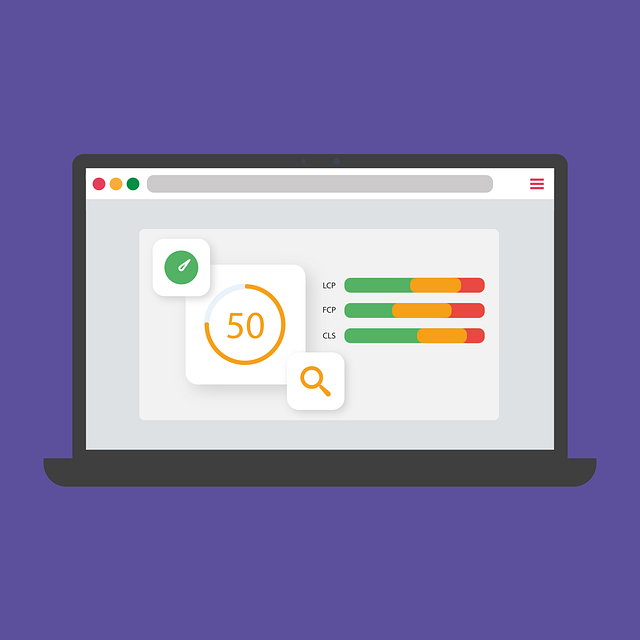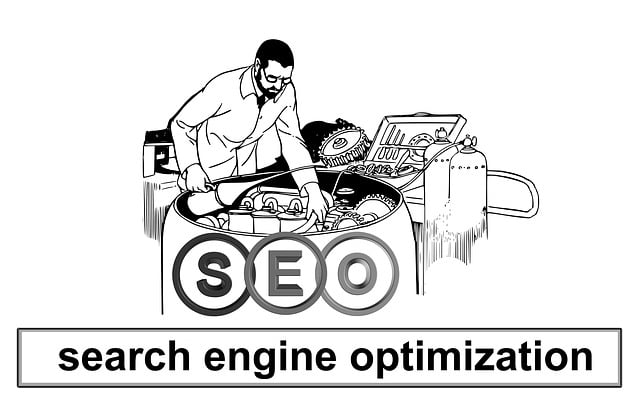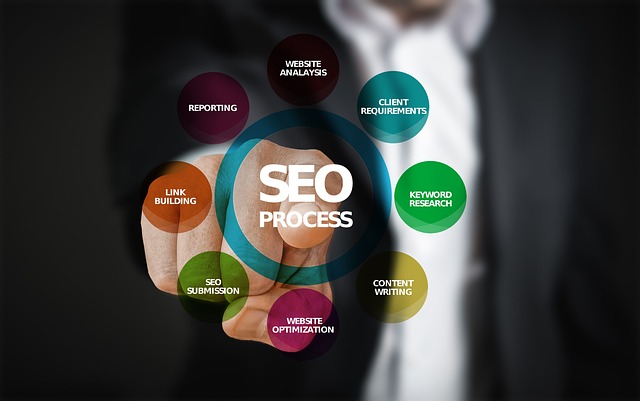In today's digital era, Artificial Intelligence (AI) is revolutionizing Search Engine Optimization (SEO), especially Technical SEO, with a focus on Core Web Vitals Optimization. AI tools utilize machine learning algorithms to analyze vast data, identify performance bottlenecks, and suggest optimizations for user experience improvement. This automation streamlines tasks like crawling, error detection, and page speed suggestions while empowering informed decision-making for website structure and content delivery network (CDN) fine-tuning. Core Web Vitals Optimization enhances metrics such as load time, interactivity, and visual stability through AI insights, ensuring websites improve rankings and deliver seamless experiences. Ethical considerations are vital to ensure AI algorithms' transparency and fairness in a diverse online environment.
“The evolution of Search Engine Optimization (SEO) is here, and Artificial Intelligence (AI) is at its forefront. This transformative technology is reshaping how we approach technical SEO strategies, pushing the boundaries of website performance. From optimizing core web vital metrics to revolutionizing content creation, AI tools are becoming indispensable.
This article delves into the intricate relationship between AI and Technical SEO, exploring various applications that enhance site speed, keyword research, link building, and user experience, while also addressing ethical considerations. Prepare to uncover the future of SEO with AI-driven core web vital optimization at its core.”
Understanding AI's Role in Technical SEO

In the ever-evolving digital landscape, Artificial Intelligence (AI) is no longer a futuristic concept but an integral part of Search Engine Optimization (SEO). When it comes to Technical SEO, AI plays a pivotal role in enhancing website performance and user experience. By leveraging machine learning algorithms, AI tools can analyze vast amounts of data to identify areas where sites can be optimized, especially focusing on the crucial Core Web Vitals. These vitals include load time, interactivity, and visual stability, all of which significantly impact how users perceive a site’s quality and usability.
AI streamlines the optimization process by automating repetitive tasks, such as crawling and indexing websites, identifying broken links or code errors, and suggesting improvements to page speed. This not only saves time for SEO specialists but also ensures that sites are technically sound and aligned with search engine guidelines. Moreover, AI-driven insights enable professionals to make data-backed decisions, fine-tuning website structures and content delivery networks (CDNs) to achieve optimal performance, particularly in a competitive online environment.
Core Web Vitals: A Primer for AI Integration

Core Web Vitals are a set of metrics that measure user experience on a website, focusing on page load time, interactivity, and visual stability. With AI integration, these vital signs can be analyzed and optimized more effectively. Machine learning algorithms can process vast amounts of data to identify patterns and areas for improvement, ensuring each component contributes positively to the overall user experience.
For instance, AI can help in identifying slow-loading assets or elements causing jarring transitions, enabling SEO specialists to implement targeted optimizations. By continuously monitoring and adjusting these Core Web Vitals, websites can enhance their search engine rankings and provide visitors with a seamless digital journey.
AI-Powered Site Speed Optimization

AI is transforming Technical SEO, and one area where its impact is profoundly felt is site speed optimization. AI-powered tools can analyze vast amounts of data to identify bottlenecks and make data-driven suggestions for improvement. By focusing on Core Web Vitals Optimization, these tools enhance user experience by ensuring pages load quickly and smoothly across all devices.
This technology goes beyond simply identifying slow-loading pages; it predicts potential issues based on patterns and trends. As a result, SEO specialists can proactively implement solutions that adhere to search engine guidelines, thereby boosting website rankings. Moreover, AI facilitates continuous monitoring, allowing for immediate adjustments to maintain optimal site performance.
Natural Language Processing and Keyword Research

Natural Language Processing (NLP) has become a powerful tool in AI-driven Keyword Research, revolutionizing how SEO strategies are formulated. By employing NLP algorithms, search engines can now understand user queries more effectively, allowing for precise identification of relevant keywords. This technology enables SEO practitioners to uncover hidden semantic connections between search terms, ensuring their content aligns with the evolving intent behind user searches. With NLP, keyword research becomes a dynamic process that goes beyond simple frequency analysis, enabling deeper insights into user behavior and preferences.
In the context of Core Web Vitals Optimization, NLP plays a crucial role in interpreting user feedback and sentiment. By analyzing reviews, comments, and social media discussions, AI algorithms can gauge public opinion on various aspects of a website, including content relevance, site performance, and overall user experience. This information is invaluable for refining SEO strategies, ensuring that keywords are chosen not just for search visibility but also for their ability to drive meaningful engagement and conversions.
Machine Learning Algorithms for Link Building

Machine Learning (ML) algorithms are transforming link building strategies in Technical SEO. These algorithms can analyze vast datasets to identify patterns and trends, helping to uncover valuable backlink opportunities. By understanding user behavior and website performance, ML models can predict which content is likely to gain natural backlinks, enabling more efficient link acquisition.
For instance, ML can enhance Core Web Vitals Optimization by identifying pages with high potential for positive feedback loops. It can also assist in evaluating the quality and relevance of incoming links, ensuring they align with a website’s focus and authority. This data-driven approach allows SEO specialists to make informed decisions, ultimately strengthening a site’s online presence and improving its rankings.
AI Tools for Efficient Content Optimization

Artificial Intelligence (AI) tools are transforming Technical SEO strategies, especially in content optimization. These tools leverage machine learning algorithms to analyze vast amounts of data, providing insights that help optimize web pages for better search engine rankings. By understanding user behavior and search trends, AI can identify areas for improvement, such as enhancing Core Web Vitals—loading speed, interactivity, and visual stability—which are critical factors in modern SEO.
With AI, content creators and optimizers can automate repetitive tasks like keyword research and on-page element suggestions. This efficiency allows them to focus more on strategic planning and less on tedious work. Moreover, AI tools can predict content performance based on historical data, enabling professionals to make data-driven decisions that boost organic search traffic and user engagement.
Enhancing User Experience with AI Recommendations

In today’s digital landscape, enhancing user experience is paramount for any website aiming to thrive online. Artificial Intelligence (AI) plays a pivotal role in this pursuit by offering personalized and intelligent recommendations that cater directly to individual user needs. By leveraging machine learning algorithms, AI can analyze vast amounts of data on user behavior, preferences, and search patterns to provide tailored content suggestions. This not only improves navigation but also increases the likelihood of users finding relevant information swiftly, thereby boosting overall satisfaction.
One area where this is particularly beneficial is in Core Web Vitals Optimization. AI-driven recommendations can identify and suggest improvements to core metrics like load time, interactivity, and visual stability, which are essential for a positive user experience. By automatically optimizing these vital factors, websites can achieve better rankings on search engines while simultaneously reducing bounce rates and increasing session durations. This dual benefit of enhanced user satisfaction and improved SEO performance makes AI an indispensable tool in the ever-evolving technical SEO strategy.
Ethical Considerations in AI-Driven SEO Strategies

As AI becomes an increasingly integral part of SEO strategies, it’s crucial to navigate the ethical implications that come with its implementation. One of the primary concerns is ensuring transparency and fairness in AI algorithms, especially when they influence search rankings. Since AI models learn from vast datasets, there’s a risk of perpetuating biases present in these data sources. This can lead to unfair advantages or disadvantages for certain websites, impacting their visibility and ultimately affecting online diversity.
Additionally, Core Web Vitals Optimization, while aiming to enhance user experience, must be approached ethically. AI tools should not manipulate website metrics deceptively; instead, they ought to assist in improving genuine user interactions. Developers and SEO specialists have a responsibility to use AI for what it was designed to do—augment human capabilities rather than replace them, ensuring that search results remain reliable and beneficial to all users.
Future Trends: AI and Core Web Vitals

As we move forward into an increasingly digital landscape, Artificial Intelligence (AI) is poised to revolutionize SEO strategies, particularly in the realm of Technical SEO. One area where AI’s impact will be profoundly felt is in Core Web Vitals Optimization. These vitals, which include metrics like page load time, interactivity, and visual stability, are crucial for user experience and search engine rankings. With AI, we can expect more sophisticated tools to analyze and predict these vital signs with unprecedented accuracy.
This technology will enable marketers and developers to proactively identify and fix issues that negatively impact user experience, such as slow loading times or unpredictable interactions. By focusing on continuous Core Web Vitals Optimization, webmasters can ensure their sites remain not only technically sound but also competitive in the ever-evolving digital marketplace. In short, AI is set to play a pivotal role in shaping the future of Technical SEO, with Core Web Vitals Optimization at its core.
